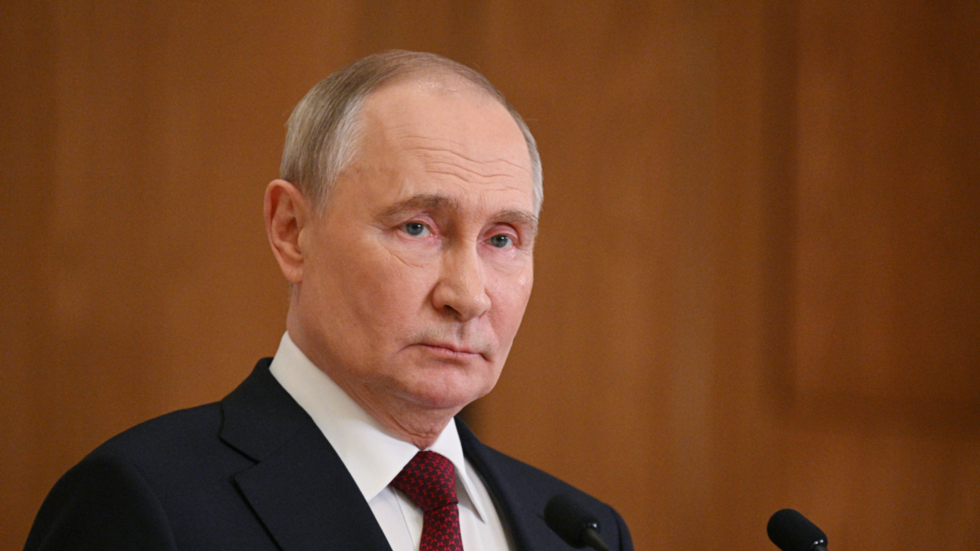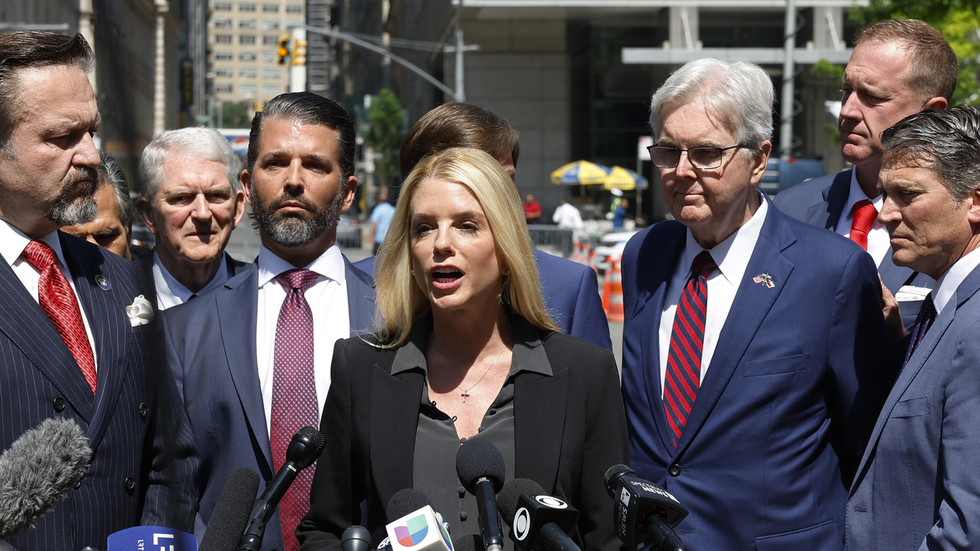Then imagine Canada bombarding US cities along its borders—Detroit, Sault Ste. Marie (Michigan) and Buffalo — in an act of solidarity with the brutal drug lords.
By HERB KEINON NOVEMBER 26, 2024 18:39 Smoke billows over Beirut's southern suburbs, after Israeli strikes, amid the ongoing hostilities between Hezbollah and Israeli forces, as seen from Baabda, Lebanon November 23, 2024.
(photo credit: REUTERS/Ayman Sahely TPX IMAGES OF THE DAY)
Smoke billows over Beirut's southern suburbs, after Israeli strikes, amid the ongoing hostilities between Hezbollah and Israeli forces, as seen from Baabda, Lebanon November 23, 2024.
(photo credit: REUTERS/Ayman Sahely TPX IMAGES OF THE DAY)
Imagine a Mexican drug cartel storming the US border one autumn morning, killing, raping, kidnapping, and pillaging in cities along the border: San Diego, Yuma (Arizona), and El Paso.
Then imagine Canada bombarding US cities along its borders—Detroit, Sault Ste. Marie (Michigan) and Buffalo — in an act of solidarity with the brutal drug lords.
How would the US react?
That question needs to be asked of those in the Western media who are somehow bewildered that there is any debate in Israel at all about whether to agree to a ceasefire in Lebanon. For some of them—adherents to an unyielding belief that all wars, even just ones, are inherently illegitimate and wrong —the very debate is taken as proof of an inexplicable Israeli bloodlust.
But Israelis are not lusting for Lebanese blood. They are not looking to destroy their neighbor in the North. They are, however, interested in ensuring that in a few years, they will not be forced, again, to vacate their cities, kibbutzim, and moshavim and watch as so much of what they built up is burned down by a Hezbollah whim.
In looking at the situation in the North, it is important not to lose the thread. And here is the thread: Hezbollah, completely unprovoked, began this war on October 8 by firing rockets on Israeli communities in a show of solidarity with Hamas. It is the Israeli government’s solemn responsibility, therefore, to ensure that Hezbollah is not in a position to do it again in a few years.
This is why there is a robust debate in the country over whether the emerging ceasefire is a good deal, something that Israelis should sign off on.
Here’s a look at some of the pros and cons.
Pros of the ceasefire deal:
De-link Lebanon from Gaza
When Hezbollah leader Hassan Nasrallah was still alive and boasting, he pledged not to stop firing on Israel until there was a ceasefire in Gaza, linking the two fronts.
That is no longer a condition, as Hezbollah—with Iran’s backing—is keen on stopping the war now so its capabilities are not further degraded. In other words, it is abandoning Hamas, something that could impact Hamas as it realizes that no organization (Hezbollah) or country (Iran) is going to come to its rescue. This is a clear victory for Israel.
Stay updated with the latest news!
Subscribe to The Jerusalem Post Newsletter
The Trump factor
US President-elect Donald Trump has said on numerous occasions that he wants to see the war in Lebanon end by the time he takes office on January 20.
This ceasefire makes that happen, offering Israel a valuable opportunity to align with Trump’s priorities and -- as many around the world will be trying to do -- cultivate a favorable relationship with the incoming administration.
The Biden factor
US President Joe Biden has invested—via his special negotiator Amos Hochstein—a considerable amount of time and energy trying to broker this deal. An Israeli refusal to sign what the Biden Administration deems to be a good package could trigger Biden’s ire, with memories in Jerusalem still stinging from how then-President Barack Obama expressed his own frustration with Israel in the waning days of his presidency by enabling a harsh anti-Israel UN Security Council resolution to pass during his lame duck period in December 2016.
Jerusalem’s concern is that Israel would not agree to this deal. The US might not veto a UN Security Council resolution dealing with Lebanon that would be adverse to its interests.
The degradation of Hezbollah’s capabilities
Despite all their bluster, Hezbollah has taken a tremendous military hit. Its leadership cadre is decimated; its rocket and missile arsenal—built up at the cost of billions of dollars—has been severely depleted; the fortifications it built along Israel’s border—in the guise of civilian villages—have largely been destroyed; its image both in Lebanon and throughout the region has been soiled.
Continuing the war might further erode Hezbollah’s capabilities. Still, the critical question is when the effort reaches a point of diminishing returns -- when the destruction of additional missiles and rockets no longer justifies the toll in Israeli blood and treasure required to sustain the campaign.
The reserves
After 14 months of war, the country—and hundreds of thousands of its reserve soldiers—is exhausted. The toll of continuing to pursue goals in Lebanon will be borne by reservists who will be asked to show up for their fourth, fifth, or even sixth stints since October 7.
The cost of this ask on the reservists, their families, and their finances is exceptionally high, let alone the cost to the country’s economy.
The reservists are still showing up for duty in large numbers, and their morale remains high—though the percentage of those showing up has dropped from some 130% immediately after October 7 to an estimated 70-80% now. For the most part, those not showing up for duty now are not doing so out of ideological reasons or opposition to the war but because the strain on their lives is just getting too great.
A ceasefire now will allow the reservists to catch a much-needed breath.
The weapons economy
This war is approaching its 14-month mark, by far the longest Israel has fought since the War of Independence. While the public has no idea how many bombs, bullets, and tank shells remain in the army’s storehouses, the palpable concern in Jerusalem whenever the Biden Administration slows down or holds up weapons shipments is indicative that the supply of weapons is not unlimited. This is something of concern, considering that a wider war with Iran is not something that can be discounted.
A ceasefire now will allow Israel to re-supply.
In addition, a ceasefire in the North will allow the IDF to direct some of the resources and soldiers who have been fighting in Lebanon to other fronts: Gaza and the West Bank.
Cons to the ceasefire deal:
No buffer zone
The biggest argument against signing the deal is that it does not provide for a buffer zone in southern Lebanon.
The goal of the offensive in Lebanon that began with a government decision in mid-September and drew global attention a couple of days later with the exploding beepers and walkie-talkies was to enable the Israelis who evacuated their communities—from Shlomi to Kiryat Shmona to Metulla and numerous kibbutzim and moshavim in between—to return home.
One of the considerations that would encourage them to return home is the belief that Hezbollah cannot—as it has promised in the past—carry out an October 7-style attack in the North and murder, rape, and kidnap the residents there the way Hamas did in the South.
One way of preventing that was to destroy the Lebanese villages that sit right along the border—keeping them from serving as jumping-off points for a Hamas-style attack. And indeed, the IDF has cleared away the villages along the border and then some, also destroying a labyrinth of attack tunnels there.
Under the emerging agreement, however, no clause prevents those villages from being rebuilt. As a result, the hope that residents of Metulla would no longer see houses in Kfar Kila from their living rooms —houses from which precision-guided anti-tank missiles were fired directly at them —is proving to be in vain.
While the emerging agreement mandates that Hezbollah be moved north of the Litani River and not be found anywhere in southern Lebanon, what will keep them from once again building fortifications disguised as pastoral villages?
The answer: Israel.
Israel will reserve the right to prevent Hezbollah from rebuilding. But the big question is: will it? Will it take action a couple of years down the line when quiet and prosperity have returned, and when the cost of taking action will be another possible war and the disruption of that quiet and prosperity?
Hezbollah still stands
While Israel never declared destroying Hezbollah as one of its war aims—as it stated regarding Hamas—the fact that Hezbollah will remain standing after the war, though significantly weakened, is a significant point of concern.
The destruction of Israel is a central tenant of Hezbollah’s radical ideology, and as long as it still exists, it will try to implement that ideology.
Israel may never be able to completely destroy Hezbollah, but it could continue to degrade its capabilities even further. The IDF now has Hezbollah on the ropes, but this ceasefire will prevent it from delivering a heavy sidewinder or a knockout punch. And if Hezbollah is not knocked out, it will—with the assistance of Iran—surely try to rise back up again.

 By The Jerusalem Post (World News) | Created at 2024-11-26 18:05:08 | Updated at 2024-11-28 17:56:22
2 days ago
By The Jerusalem Post (World News) | Created at 2024-11-26 18:05:08 | Updated at 2024-11-28 17:56:22
2 days ago








